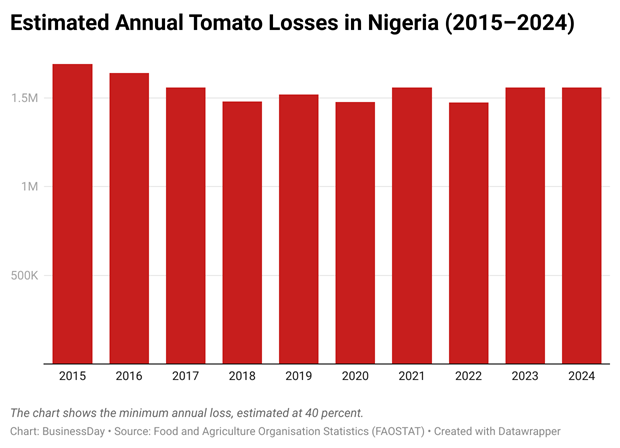Early this week, Access Bank plc secured approval of the Securities and Exchange Commission (SEC) to proceed with plans to raise N52.6 billion in a share sale as it pursues expansion and stronger cash reserves.
The bank will be selling shares to existing shareholders by way of Rights Issue of 7,627,639,636 shares of 50 kobo each at N6.90. Shareholders of the bank had approved the board of directors’ proposal to raise additional equity at an extra ordinary meeting (EGM) held in Lagos on October 13, 2014.
Acceptance list opened for the Rights Issue on Monday, January 26, 2015, and will close Wednesday, March 4, 2015. The Rights being offered are tradable on the floor of the Nigerian Stock Exchange (NSE) for the duration of the Issue.
The capital raising falls in line with Access Bank’s five-year corporate strategy plan to be one of the top three banks in the country and the “world’s most respected African bank.” This will be anchored on four critical pillars – capital, human capital, governance and risk management. It will also enable the bank to be more competitive and meet the funding needs of its blue-chip customers that meet its’ credit risk criteria.
The Rights circular
As of November 2014, the authorised share capital of the bank was N20 billion, comprising 38 billion ordinary shares of 50 kobo each and 2 billion preference shares of 50 kobo, with the issued and fully paid up share capital being 11,441,459,454, comprising 22,882,918,908 ordinary shares of 50 kobo each.
The bank’s share premium is put at N161.036 billion; its general reserve is N22.232 billion, while shareholders’ funds worth N244.482 billion. Access Bank market capitalisation at Issue Price (pre-issue) is N154. 459 billion, while its market capitalisation at Issue Price (post-issue) will be N157.892 billion.
The rights issue circular also shows that shares that are not taken up by March 4, 2015, will be allotted on a pro-rata (equal) basis to shareholders who applied and paid for additional shares over and above their provisional allotment. Accordingly, the shareholders who do not accept their allotment in full may have their shareholding in the bank diluted.
Issuing Houses to the Rights
The lead issuing house to the rights issue is Chapel Hill Advisory Partners Limited, while joint issuing house are: Marina Securities Limited, Stanbic IBTC Capital Limited, Renaissance Securities Limited, Vetiva Capital Management Limited, Greenwich Trust Limited, Futureview Financial Services Limited, and WSTC Financial Services Limited.
Financial highlights
A cursory look at the financial highlights of the bank show that in the first half (H1) of 2014, its gross earnings was N117.932 billion compared with full-year 2013 level at N208.204 billion. Profit before tax (PBT) in H1’14 stood at N27.118 billion against full-year 2013 level of N44.996 billion.
Profit after tax (PAT) in the same H1’14 in review was N22.587 billion against N36.298 billion in full- year 2013. Total asset in H1’14 at N2.04 trillion was pretty higher than N1.835 trillion in full-year 2013. The bank’s net assets in H1’14 was N259.122 billion against N244.482 billion in full-year 2013. Earnings per share (EPS) in H1 was 99 kobo against 159 kobo in full-year 2013.
Use of Rights Issue proceeds
The Rights Issue is being undertaken in order to increase its capital base to enable it achieve its strategic objectives. The estimated net proceeds of N51,132,471,586 (N52bn) from the Rights Issue after deducting the total costs of the issue estimated at N1.498 billion, representing 2.86 percent of gross issue proceeds, will be applied as follows: Branch Expansion and Facility Upgrade (N10.370bn); Replacement of Obsolete Infrastructure and Equipment (N11.250bn); Upgrade of Distribution Channels (N4.120bn); IT and Systems Upgrade (N4.270bn); Working Capital (N18.592bn), and International Expansion (N2.530bn).
The bank’s mid-term strategy
Access Bank mid-term strategy between 2013 and 2017 is in line with capitalising on the vast opportunities primarily in Nigeria, and also in the sub-Saharan African region. In furtherance of the bank’s objective of ranking as one of the top three banks in its chosen markets, the management and board have identified certain sectors and market segments as growth opportunities for the next five years.
The bank believes that enhancement of its capital base is critical to the realisation of the potentials in the identified sectors. Additionally, the CBN recently designated eight banks, including Access Bank, as Systematically Important Banks (SIBs). SIBs will be required to have an additional 1 percent buffer of tier- 1 capital above the minimum capital required by other banks. These developments make the enhancement of the bank’s capital base imperative for the realisation of its strategic objectives.
What did board members say?
Gbenga Oyebode, chairman, Access Bank, told shareholders that: “By accepting your rights, you will be supporting the bank to further consolidate its position as a Tier I bank and be well positioned to achieve its strategic market leadership objectives. I, therefore, strongly recommend that you take advantage of the opportunities presented by this Rights Issue, and accept your rights in full.”
He said further: “While developing the bank’s strategy going forward, we must try and anticipate the possible headwinds and risks that the Bank may face, and put in place robust risk-management and corporate governance frameworks to mitigate such risks. Management has broadly categorised the potential risks into risks to the entire banking industry and risks specific to Access Bank. Potential risks to the entire banking industry include headwinds from regulatory changes. The bank has set comfort buffers above regulatory limits to reduce the impact of any unexpected regulatory changes.
Read also: Consolidated Hallmark Insurance sustains investor confidence despite market lull
“Potential risks specific to the bank include, but are not limited to, composition of the bank’s deposits, loan book concentration, and foreign currency risks. The bank has strong internal risk management teams dedicated to monitoring all of the Bank’s identified risks and exposures. Our governance and risk-management framework policies remain strong and robust. Over the years, these policies have protected the bank while allowing us to pursue opportunities that drive long-term growth and value. The board of dsirectors is confident that the bank has the appropriate capacity to protect and safeguard the interests of its depositors and shareholders at all times.”
Herbert Wigwe, group managing director/CEO, Access Bank, said the proceeds from the offer will be used to upgrade the bank’s information technology platforms to enable it provide better services, upgrade its branch networks and further improve the working environment.
“The funds raised would provide Access Bank with additional capacity to further consolidate its leading corporate banking business as well as additional capital headroom to support our increasing market share in the SME and retail segments,” Wigwe said.
He noted that despite the challenging conditions in the nation’s banking sector with regulatory changes and increased competition, Access Bank has continued to sharpen its execution skills, thereby ensuring a solid platform to build on.
Total asset, operational spread, and products/services
Access Bank has total assets of N2.044 trillion and serves approximately 6.5 million customers from 366 branches (315 in Nigeria, three in the United Kingdom, and 48 in other African countries) as of 30 June 2014.
The bank group provides a range of banking and financial services through its subsidiaries operating in six African countries and the United Kingdom.
Financial products and services offered by the Group include granting of loans and advances, equipment leasing, corporate and trade finance operations, treasury and investment services, retail banking (including current and savings accounts, credit cards, ATM services, electronic banking and retail lending), money market activities, private banking/wealth management services, foreign exchange services, funds transfer services, bullion/cash services and bank guarantees.
Recall that Access Bank plc launched a highly successful $400 million Eurobond in June 2014. The transaction follows the bank’s highly successful $350 million five-year senior debt issued in 2012. Access Bank is rated B (Fitch) and A+ Agusto & Co.
Future plans
Access Bank is in its third five-year plan, with the strategic vision of becoming the World’s Most Respected African Bank by 2017 and attain a top three position in any of its chosen market segments, based on all performing metrics. To this end, the brand promise is to deliver sustainable success to customers, colleagues and communities by aligning innovation, customer-focus and global standards to provide the benefits of superior speed, service and security.
Specifically, the bank plans to focus on the following initiatives, over the next three years through to 2017, in order to achieve its strategic goals: Customer-centric Initiative: The Bank’s number one priority is its customers. Accordingly, this initiative focuses on improving and deepening the relationship of the bank and its customers by embarking on customer sub-segmentation, which will improve the feedback process and transform the whole customer experience.
Superior Product Initiative: Under this initiative, the bank plans to develop superior banking products, which will act as “game changers”, tailor-made for specific customer needs. As the Nigerian banking industry becomes more competitive, the bank believes it can increase its market share by developing products that offer better value and by showing a better understanding of individual customer needs.
Channels Optimisation Initiative: The bank is in the process of optimising its services distribution channels. The goal under this initiative is to improve the service delivery channels to customers by providing a wide range of distribution channels, such as mobile banking and mini cash centres, while improving the bank’s operational efficiency by rationalising its branch network.
Product Pricing Initiative: The Bank aims to automate and improve its product pricing to maximise returns and minimise risks, in line with the Bank’s risk management guidelines. The Bank is looking to boost profitability by improving its return on risk-adjusted capital model for pricing its products and services.
Relationship Management Initiative: Under this initiative, the bank aims to maintain and strengthen its relationship with existing customers, while attracting new customers. The bank sees its value chain model (VCM) as an important avenue for attracting new customers based on trust and the strong working relationship with existing clients.
Iheanyi Nwachukwu











